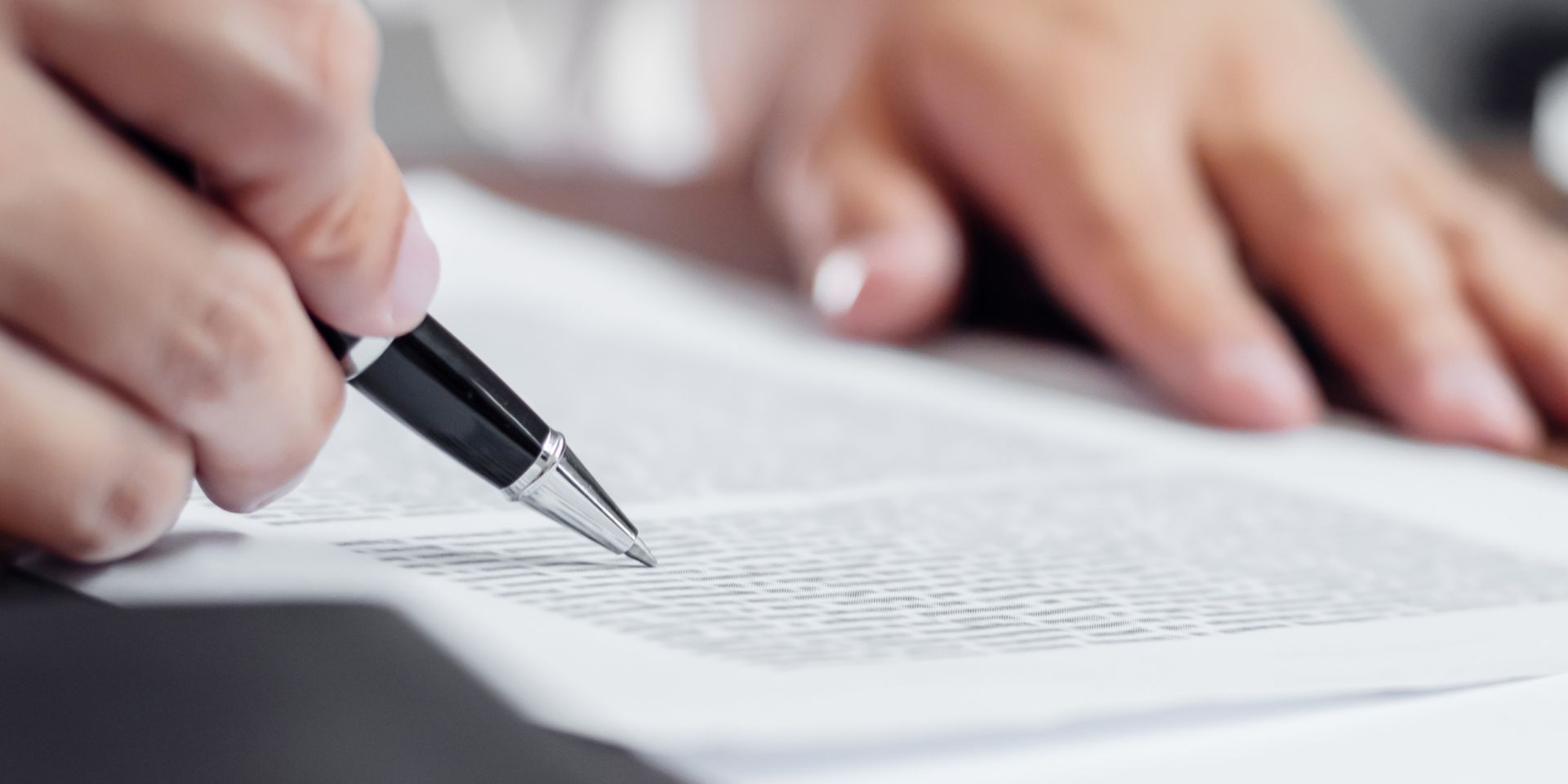The Use Of Bad Faith And Other Experts In The Trial Of A Bad Faith Disability Case
1. What Is Expert Opinion In An Insurance Bad Faith Case?
“Bad Faith” as that term is used by the Courts in insurance coverage cases, simply means an unreasonable denial of benefits including an unreasonable denial of the duty to defend. Just as with a personal injury case, or any other kind of tort case, expert opinion is frequently required when litigating an insurance bad faith case. Technical experts such as doctors, geologists, contractors, soil engineers, electricians, plumbers, etc., can all be used. The range is as great as the underlying coverage issue may require. The purpose of this paper is to discuss the value or lack thereof of using “bad faith” experts in a first party bad faith case in order to prove the unreasonableness of the denial of coverage.
Numerous issues can be addressed by “bad faith” experts. For example, expert opinion may be allowed to show whether or not the insurer conducted a fair and thorough investigation; whether the insurer gave as much consideration to the insured’s interests as it did to its own; whether the insurer misinterpreted the policy provisions; whether the insurer offered all of the coverages available under the policy; whether the insurer paid any portions of the claim in which its liability was reasonably clear; whether the insurer attempted to impose a more stringent definition of disability than that required by California law-the list is as long as the theories under which an insurer can be found liable for breach of the covenant of good faith and fair dealing.
2. Do You Need An Expert To Prove Bad Faith?
In a bad faith case, use of an expert can be discretionary. Numerous cases have held that it is not necessary to use an expert to prove bad faith. For example, in DeChant v. Monarch Life Insurance Company, (1996) 200 Wis. 2d 559, the court opined that the insured was not required to introduce expert testimony to prove a cause of action in tort for bad faith refusal to pay full disability benefits under insurance policy, where allegations of bad faith did not implicate complex industry practices or procedures and jurors did not need special knowledge or skill or experience in order to properly understand and analyze insurer’s conduct. Similarly, in Weiss v. United fire and Casualty Company, (1995) 197 Wis.2d 365, the court held that when an insurer’s alleged breach of its duty of good faith and fair dealing toward its insured involved facts and circumstances within the common knowledge and ordinary experience of the average juror, the insured need not produce expert testimony to establish bad faith claim.
Depending on the facts of the case, it may be enough to simply cross examine the insurance company witnesses as to the standards that a reasonable insurer must apply when adjusting a claim. It can be very helpful for a jury to hear the correct standards that should have been applied directly from the mouths of the defendants. Remember, bad faith experts are expensive. If you are not trying an institutional bad faith case, you simply may not need one.
If the attorney does decide to use an expert, the next question that should be addressed is how and when. In many instances, attorneys decide that the plaintiff is the best witness to tell the story and will then use an expert to comment on claims handling only after all the evidence has been presented. However, when you are attempting to implicate the institution and prove pattern and practice, it can be very effective to put your bad faith expert on as the first witness. The expert can then draw the large picture or the road map for the jury. The individual witnesses’ testimony, including the insured and the company’s own employees, is then presented against the backdrop of institutional wrong that the expert has provided. Since an expert can rely on inadmissible evidence in forming an opinion, this can also be a way to get information before a jury that would otherwise be excluded.
3. Requirements For Admissibility
(a) CALIFORNIA: Under Evidence Code §801 there are three basic requirements for the admissibility of expert opinion testimony:
- The subject matter of the expert’s testimony must be sufficiently beyond the common experience of the average person such that the opinion could assist the jury and/or Judge.
- The witness must have sufficient knowledge, skill, experience, training or education to qualify as an expert on the subject; and
- The opinion must be based on reliable matters.
Expert opinion is not permitted when the subject matter is “one of common experience” upon which jurors do not need assistance in arriving at a conclusion. Godfred v. Steinpress (1982) 128 Cal.App.3d 154. Obviously, this is an area where parties often file competing motions in limine to keep the other side’s expert out.
Expert opinion is not allowed where the issue is a matter of law. In bad faith cases, it is imperative to remember that your expert cannot testify as to “bad faith.” Bad faith is a legal issue and such testimony will be excluded. Similarly, experts cannot testify regarding their own interpretations of the law regardless of their qualifications to do so. That role is reserved solely for the Court and nothing can bet a Judge angrier than an expert who gives a legal opinion. The expert, however, may and should testify that a particular insurer’s practices falls below the standard of care or the custom and practice of the industry.
The California Supreme Court has allowed expert testimony on “the conduct and motives of an insurance company in denying coverage”:
“We can conceive of many ways in which a lay jury, in assessing the conduct and motives of an insurance company in denying coverage under this policy, could benefit from the opinion of one who by profession and experience, was peculiarly equipped to evaluate such matters in the context of similar disputes.”
Neal v. Farmers Ins. Exch., (1978) 21 Cal.3d 910,924.
In addition, there are bad faith cases in which expert testimony is required. For instance, in a bad faith case where the plaintiff is asking for accelerated damages pursuant to Egan v. Mutual of Omaha (1979) 24 Cal.3d 809; and Pistorius v. Prudential Ins. Co. of Am. 123 Cal.App.3d 541, it is imperative to have a financial expert who can testify as to the present value of future policy benefits. Here the predictable fight is over the discount rate to be used to determine the value as well as the Cost of Living increase if one is contained in the policy. In addition, if the trier of fact decides to award punitive damages, it is plaintiff’s burden to present proof of the net worth of the defendant. Here again it is necessary to present expert testimony.
In state court, unless the parties agree otherwise, there is no requirement that the expert create a written version of the opinion he/she intends to offer at trial.
(b) FEDERAL: Under the Federal Rules of Evidence, expert opinion testimony is admissible if it is based on “scientific, technical or other specialized knowledge” that will “assist the trier of fact to understand the evidence or to determine a fact in issue.” [FRE 702; Kumho Tire Co., Ltd. V. Carmichael (1999) 526 US 137.] Even in diversity cases, the admissibility of expert testimony is controlled by Federal Law.
In Federal Court the trial judge is the “gatekeeper” of expert testimony. This means that it is up to the trial judge to ensure that an expert’s testimony is both reliable and relevant. Daubert v. Merrell Dow Pharmaceuticals, Inc. (1993) 509 US 579.
In bad faith cases, defendants almost always attempt to use Daubert to disqualify the plaintiff’s expert. However, the Ninth Circuit has held that a bad faith expert’s testimony and qualifications do not have to be evaluated pursuant to Daubert if the expert is both qualified and testifying from his own experience. Thomas v. Newton Intern. Enterprises, 42 F.3d 1266(9 th Cir. 1994). Daubert only applied to an expert testifying based on hard science and specifically on a particular methodology’s application to the evidence. U.S. Fidelity & Guar. Co. v. Sulco, Inc. 171 F.R.D. 305 (D. Kan. 1997).
In addition, although prohibited from commenting on the law or drawing legal conclusions, a bad faith expert may reasonably rely on the application of statutes in determining the reasonableness of a company’s actions. Kraeger v. Nationwide Mut. Ins. Company, 1997 WL 109582 (E.D. Pa. 1997). Moreover, it is considered reasonable for experts in bad faith insurance practices to look to the relevant statutory and regulatory requirements in examining the reasonableness of an insurer’s actions. Id. at *2. See also Hangarter v. Paul Revere, UnumProvident, et al. (2002) 236 F. Supp.2d 1069.
4. The Expert’s Report
Under Rule 26 of the Federal Rules of Civil Procedure, any expert who is retained or specially employed to give an opinion at trial must prepare a report covering the matters on which the expert intends to testify. This rule does not apply to treating physicians. While treating physicians must be identified as experts under this rule, as long as their testimony is limited to their own diagnosis and treatment, they are not required to provide a Rule 26 report. Nevertheless, in the absence of a report, expect opposing counsel to file to keep the treating physician from testifying.
Each Rule 26 Report must contain the following:
- All opinions to be expressed;
- The bases for each opinion;
- The data or other information considered in forming the opinion;
- The qualifications of the witness;
- All publications authored by the experts within the past ten years;
- All compensation to be paid to the expert;
- A listing of other cases in which the witness has testified as an expert (at trial or deposition) in the past 4 years.
Remember, if there is any chance that the expert will consider additional material between the time of the writing of the report and testimony at trial, it is imperative for the expert to reserve the right to add to the report. Without doing so, the Court could limit the opinion to only the matters discussed in the report. Given the fact that the expert disclosure and report takes place long before trial, a failure to do this could certainly limit the usefulness of your expert’s testimony.
5. The Pros And Cons Of Deposing The Other Side’s Expert
Experts are expensive and expert depositions, particularly when they involve doctors or other specialists are very expensive. Some doctor’s charge as much as $1,000 an hour with a three hour minimum. For a plaintiff, this can represent a significant financial burden. The question then becomes is it really necessary. If the case is in Federal court the expert has been required to provide a complete report. Remembering that the expert has been hired to give an opinion that will favor the opposition, it often is not particularly useful to depose the expert on his/her written opinion. In fact, it is often harmful since the questions that you ask will be used to further prepare the expert for trial and expose the thrust of your cross examination. Often, however, regardless of the cost, you will want to conduct a short deposition just so that you can evaluate how effective a witness the expert might be at trial. In that case, keep it simple. Ask the basics-get the expert’s qualifications and opinions. With regard to qualifications, be sure to ask details about the expert’s prior work as an expert including the number of times he/she has testified for plaintiffs and defendants, the nature of the cases, did the case go to trial, the outcome, any failures to qualify and the percent of the experts income derived from expert testimony.
With regard to the expert’s opinions, do not end the deposition without asking if there are any other opinions he/she intends to give at trial. If the expert or his/her attorney tries to evade the question, use the expert witness declaration or the report to pin this down. Also be sure to identify and get the details about all tests and analysis done; all communications with counsel, all instructions given regarding the expert’s task, any additional materials he/she could have reviewed; any facts that are inconsistent with the expert’s opinions. Try to isolate when the expert actually formed the opinion that he/she now holds. Remember, however, always balance whether probing the expert’s opinions will reveal weaknesses in the testimony that could help your client or simply cause the expert to do more work before the trial to strengthen his/her testimony. And lastly, if you take the expert’s deposition, be sure to identify all of the items in his/her file.
For each witness you are considering deposing, ask yourself what you hope to get from the deposition. You may find that a less expensive means of discovery will serve your client just as well.
6. Preparing Your Expert For Deposition
In a bad faith disability case, the bad faith expert is only one of the experts who will testify at trial. While you can control the number of depositions that you take, you cannot control the number taken by opposing counsel. It is a sure bet that numerous treating physicians will also be deposed by the insurance company even if their treatment is not implicated in the disability. I had one case in which so many physicians were deposed I wondered if they were going to stop when they found the doctor who had delivered our plaintiff. These physicians are often not used to being deposed. It is important to take the time to prepare your witness. If possible make an appointment to see the witness in person. Make sure the witness knows that you are paying for his/her time. Inform the witness of the substance of the litigation and of the questions you anticipate the defense will ask. Inform the witness of the theme of your case and the way in which his/her testimony fits into the case. Make sure the knows that in all likelihood the opposing counsel will try to discredit his/her opinion and help the witness not to take the attacks personally or get defensive. Go over the important rules of good witness behavior such as answering only the question that is asked and not to attempt to clarify opposing counsel’s confusion. Discuss all of the documents in the doctor’s file and how they relate to your client’s disability. Don’t forget to explain to the witness that you are not his/her attorney but that you will be making objections. Explain what the objections mean and encourage the witness to give you a chance to object before he/she answers the question. Always remind the witness that no matter how nice the opposing attorney appears, he/she is there to provide ammunition to deny his/her patient their disability benefits.
7. The Use Of A Bad Faith Expert After Campbell
On April 7, 2003, The United States Supreme Court decided State Farm Mut. Auto. Ins. Co. v. Campbell, 123 S.Ct. 1513 . The Court’s decision, which is often contradictory and confusing, at the very least seems to hold that a punitive damage award cannot be based on conduct which takes place out of the State’s jurisdiction. Moreover, dissimilar acts, while “unsavory” cannot serve as a basis for a punitive damage award.
At the same time that the Supreme Court eliminates the possibility of a punitive damage award based on out-of state conduct, it seems to be allowing a jury to consider evidence of the existence of similar conduct as well as the frequency with which the conduct has occurred. Moreover, the decision appears to recognize that repeated misconduct is more reprehensible than an individual instance of wrongdoing. Obviously, the effects of this decision are as yet unknown. One thing seems to be certain, however, the days of hoping for a large punitive damage award where the actual damages are small are over for now. Because the Supreme Court seems to have established a multiplier of compensatory damages to punitive damages, attorneys will now have to concentrate on enlarging upon the amount of such damages. This may make experts such as physicians, economists, etc. more vital than they may have been before.
Nevertheless, in the right case, a bad faith expert can still prove invaluable and may be the only person who can provide the nexus between the out-of-state bad acts and the acts committed in your case. A good “bad faith” expert may make it easier for your jury and the judge to understand the reprehensibility of the insurer’s bad faith acts in your case and to maximize your punitive damage award under the Court’s new ratio.
How to best use a bad faith expert after Campbell or even whether or not to use one at all, is a discussion that has just begun. In developing a litigation plan in which you hope to obtain punitive damages, this discussion is going to have to take a prominent place at the table.




